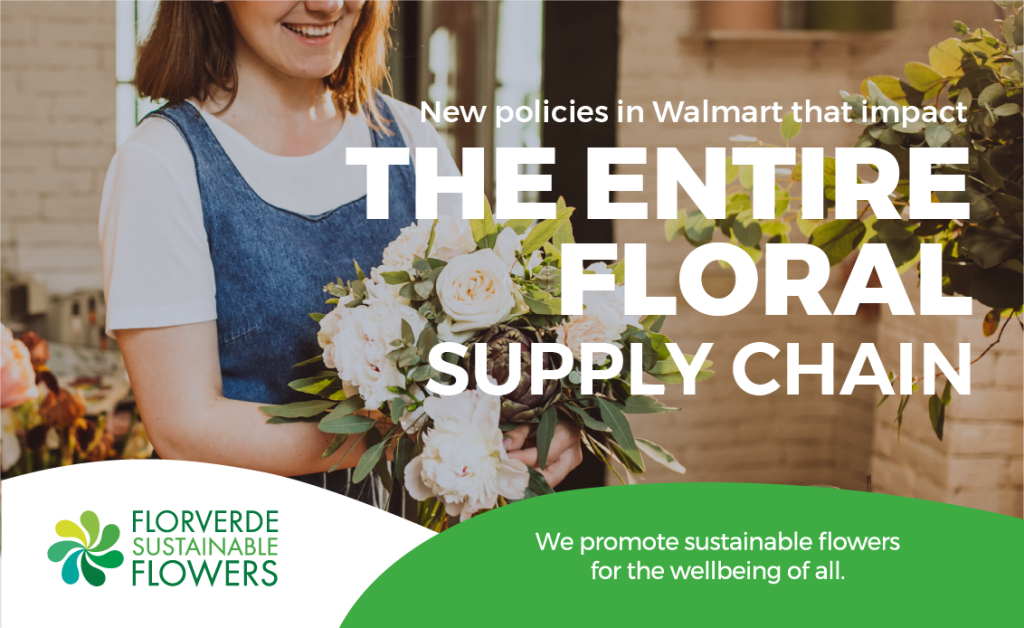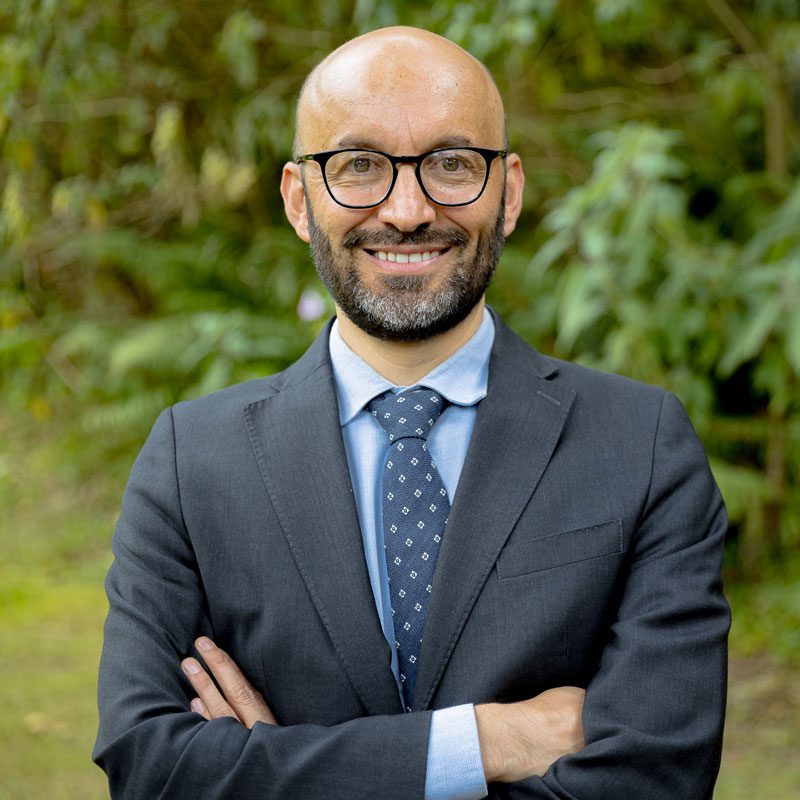Posted on noviembre 5, 2021 by Comunicaciones Florverde

If the flowers you buy and sell are grown to a higher standard of sustainability over the next five to 10 years, you may have — among many others — Walmart to thank.
Last week, the giant retailer announced new policies likely to have an impact on the entire floral supply chain. In a video presentation billed as the Walmart Produce Sustainability Summit, company representatives elaborated new sustainability goals in three areas: people, packaging, and pollinators.
“This kind of announcement sends a good message for the public,” said Ximena Franco Villegas, executive director at Florverde Sustainable Flowers
The Birds and the Bees
Whatever anyone may think of Walmart as a retail price competitor, the company has an established reputation as a leader in promoting sustainability, going back at least 15 years. Of its latest initiatives, the focus on protection of pollinators will likely have the largest and most immediate practical impact.
It doesn’t hurt that pollinators are a marketing-friendly cause, linked to images of flowers, birds, and bees. Walmart is also encouraging suppliers to label as such garden plants that are pollinator-friendly.
Trust, but Verify
Who verifies that a particular grower, whether of food or flowers, has successfully implemented IPM? In Walmart’s case, it helps that adoption of IPM is among the standards most commonly required when a grower earns any green label, such as Rainforest Alliance or Fair Trade USA.
The published list does include notice that additional third-party certifications may be added. Since the standards addressed by Florverde Sustainable Flowers are benchmarked to the standards of Global G.A.P., it seems likely that Florverde could be among those quickly added to the list.
“It’s great that Walmart is taking this initiative with IPM,” said Franco Villegas, “but it’s also important to give recognition of the groups and the growers that have already been working very hard for decades to bring responsibly produced flowers to the market.”
Workers Are Essential
Fair and respectful treatment of workers is another aspect of sustainability. By the end of next year, said Mundo, Walmart’s fresh produce and fresh flowers will be sourced exclusively from suppliers who have endorsed the Ethical Charter on Responsible Labor Practices.
Walmart’s third new sustainability thrust relates to packaging. While more than half of Walmart’s private-brand packaging is already recyclable, reusable, or compostable (based on reports from Walmart suppliers), the new goal is to reach 100 percent by 2025.
All Together Now
Mass-market retailers have long been in the forefront of sustainability efforts within the floral supply chain — for several reasons. For one, at a grocery store, cut flowers are typically part of the produce department — and produce is an area where issues relating to environmental and social responsibility have taken a higher profile with consumers, as a matter of safety and trust. Two, the public visibility of mass marketers makes them a natural target for public pressure by environmental groups. Three, with their vast purchasing power, mass-market retailers have been able to dictate terms to suppliers.
The difficulty, for flower growers and others who supply the mass-market chains, has been that too often, each buyer has created its own set of standards, resulting in a costly and confusing multiplicity of requirements. “This issue harkens us back to the establishment of the Interstate Commerce Clause in the U.S. Constitution, which was included to prevent a disparate regulations among the states and impeding trade,” said SAF Senior Lobbyist Joe Bischoff. “A level of collaboration and acceptance of sustainability standards among large retailers would go a long way to providing clarity to growers.”
Efforts to combat this problem have long been underway within the floral industry. One international organization, the Floriculture Sustainability Initiative, has among its goals the development of standards that can serve as benchmarks, reducing the need for multiple audits. PMA’s Ethical Charter on Responsible Labor Practices was created with a similar intention.
But the task is complicated. Real-life sustainability criteria can vary, not just from buyer to buyer, but from one community and natural environment to the next. No one organization or business entity can impose its standards worldwide — as Walmart’s announcement implicitly recognizes. The giant retailer’s ambitious goals serve as a reminder that achieving sustainability, in the floral supply chain and elsewhere, will require collaboration and good faith on a global scale.
Also you can check the FSI Basket of Standars here: https://www.fsi2025.com/basket/





